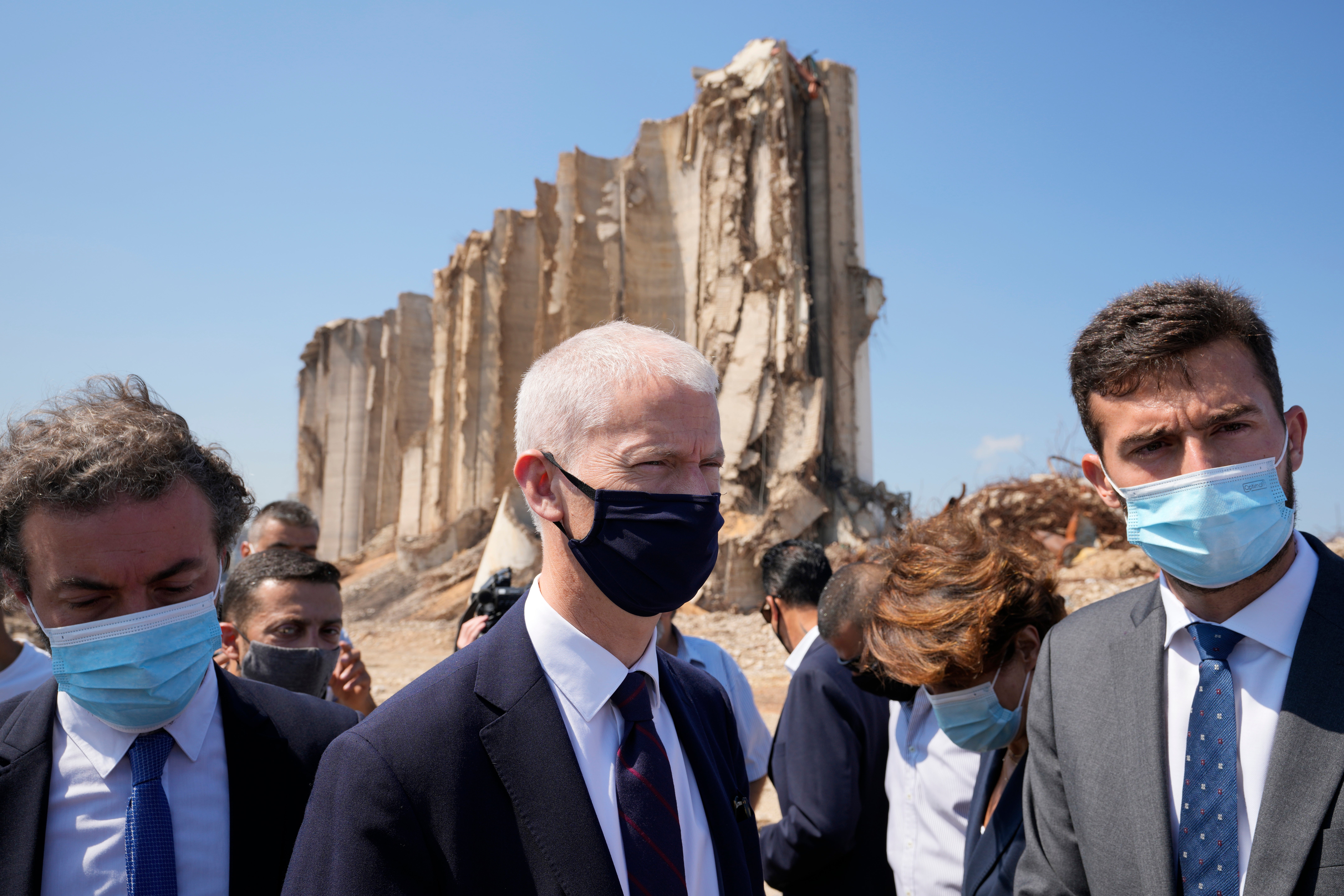French official warns Lebanese leaders of upcoming sanctions
A French Cabinet minister has criticized Lebanese leaders and warned them of upcoming sanctions from Paris

A French Cabinet minister criticized Lebanese leaders Tuesday, warning them of upcoming sanctions from Paris that will target Lebanese officials blocking the formation of a new government.
The remarks by France’s Foreign Trade Minister Franck Riester came during a visit to Beirut’s port, devastated in a massive explosion in August last year that killed over 200 people and injured hundreds more.
In another part of the capital, dozens of relatives of port blast victims gathered Tuesday afternoon outside the home of caretaker Interior Minister Mohamed Fehmi, tossing into the yard of his building wooden coffins that symbolized the victims.
They then tried to storm Fehmi's building and scuffled with riot police who beat them with clubs. The families were able to break down two metal gates leading to the building and at least two men suffered minor head wounds.
More than a dozen women dressed in black sneaked into the yard where they carried posters of their loved ones. Another sprayed the word “killer” in red at the entrance as men pelted the building with tomatoes.
After sunset, a large riot police force fired dozens of tear gas cannisters and pushed the protesters away from the street where Fehmi lives.
Family members are angry with Fehmi because he rejected a request by the judge investigating the explosion to question Maj. Gen. Abbas Ibrahim, who is one of Lebanon's most prominent generals and heads the General Security Directorate.
"Mohamed Fahmi, we will not leave you alone. Lift the immunity," said Ibraim Hoteit, whose brother Tharwat, was killed in the blast.
Earlier on Tuesday, Reister said members of the political elite in Lebanon failed to respect their declared commitment to reforms and warned of a first wave of sanctions by France, Lebanon's colonial ruler. He did not say whether the measures will be imposed only by France or perhaps by the European Union as well.
“France respects its promises, unlike Lebanese authorities that did not implement reforms,” Riester told reporters, standing amid the ruins in the port. “Things cannot continue this way.”
Lebanon is going through an unprecedented economic and financial crisis, made worse by a political deadlock that’s left the tiny Mideast country without a fully functioning government since August.
French President Emmanuel Macron visited Beirut twice since the port blast, pressing Lebanese politicians to implement reforms in order to release international investments and loans worth billions of dollars.
Repeated promises of reforms by Lebanon’s political elite, which has run the country since the end of the 15-year civil war in 1990, never materialized. The ruling class, including some former warlords, has been blamed for decades of corruption and mismanagement that have brought Lebanon to near-bankruptcy.
Lebanese Prime Minister Hassan Diab’s government resigned days after hundreds of tons of ammonium nitrate, a highly explosive material used in fertilizers that had been improperly stored in the port for years, exploded on Aug. 4, killing 211 people. It also injured more than 6,000 and damaged entire neighborhoods of Beirut.
Riester later briefed President Michel Aoun on French aid to Lebanon since the blast, according to the president’s office. After the meeting, Riester tweeted that almost a year ago Lebanese political leaders pledged before Macron “to form a government and reform their country to stem the collapse."
“Nothing was done," he said. “This blockage is suicidal.”
Subscribe to Independent Premium to bookmark this article
Want to bookmark your favourite articles and stories to read or reference later? Start your Independent Premium subscription today.
